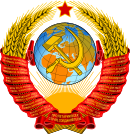 Global Information
Global InformationRussian literature information

| Part of a series on the |
| Culture of Russia |
|---|
 |
| Society |
|
| Topics |
|
| Symbols |
|
|
| Part of a series on the |
| Culture of the Soviet Union |
|---|
 |
| People |
| Languages |
| Traditions |
| Cuisine |
| Festivals |
| Literature |
| Music |
| Sport |
|
Russian literature refers to the literature of Russia, its émigrés, and to Russian-language literature. The roots of Russian literature can be traced to the Middle Ages, when epics and chronicles in Old East Slavic were composed. By the Age of Enlightenment, literature had grown in importance, and from the early 1830s, Russian literature underwent an astounding "Golden Age" in poetry, prose and drama. The Romantic movement contributed to a flowering of literary talent: poet Vasily Zhukovsky and later his protégé Alexander Pushkin came to the fore. Mikhail Lermontov was one of the most important poets and novelists. Nikolai Gogol and Ivan Turgenev wrote masterful short stories and novels. Fyodor Dostoevsky and Leo Tolstoy became internationally renowned. Other important figures were Ivan Goncharov, Mikhail Saltykov-Shchedrin and Nikolai Leskov. In the second half of the century Anton Chekhov excelled in short stories and became a leading dramatist. The beginning of the 20th century is sometimes called the Silver Age of Russian poetry. The poets most often associated with the "Silver Age" are Konstantin Balmont, Valery Bryusov, Alexander Blok, Anna Akhmatova, Nikolay Gumilyov, Sergei Yesenin, Vladimir Mayakovsky, and Marina Tsvetaeva. This era produced some first-rate novelists and short-story writers, such as Aleksandr Kuprin and Nobel Prize winners Ivan Bunin, Leonid Andreyev, Fyodor Sologub, Yevgeny Zamyatin, Alexander Belyaev, Andrei Bely and Maxim Gorky.
After the Revolution of 1917, Russian literature split into Soviet and white émigré parts. While the Soviet Union assured universal literacy and a highly developed book printing industry, it also established ideological censorship. In the 1930s Socialist realism became the predominant trend in Russia. Its leading figures were Nikolay Ostrovsky, Alexander Fadeyev and other writers, who laid the foundations of this style. Ostrovsky's novel How the Steel Was Tempered has been among the most popular works of Russian Socrealist literature. Some writers, such as Mikhail Bulgakov, Andrei Platonov and Daniil Kharms were criticized and wrote with little or no hope of being published. Various émigré writers, such as poets Vladislav Khodasevich, Georgy Ivanov and Vyacheslav Ivanov; novelists such as Gaito Gazdanov, Vladimir Nabokov and Bunin, continued to write in exile. Some writers dared to oppose Soviet ideology, like Nobel Prize-winning novelist Aleksandr Solzhenitsyn and Varlam Shalamov, who wrote about life in the gulag camps. The Khrushchev Thaw brought some fresh wind to literature and poetry became a mass cultural phenomenon. This "thaw" did not last long; in the 1970s, some of the most prominent authors were banned from publishing and prosecuted for their anti-Soviet sentiments.
The end of the 20th century was a difficult period for Russian literature, with few distinct voices. Among the most discussed authors of this period were Victor Pelevin, who gained popularity with short stories and novels, novelist and playwright Vladimir Sorokin, and the poet Dmitri Prigov. In the 21st century, a new generation of Russian authors appeared, differing greatly from the postmodernist Russian prose of the late 20th century, which led critics to speak about "new realism".
Russian authors have significantly contributed to numerous literary genres. Russia has five Nobel Prize in literature laureates. As of 2011, Russia was the fourth largest book producer in the world in terms of published titles.[1] A popular folk saying claims Russians are "the world's most reading nation".[2][3]
- ^ Moscow International Book Fair Archived 2012-04-25 at the Wayback Machine. Academia-rossica.org. Retrieved on 2012-06-17.
- ^ The Moscow Times The most reading country in the world? Archived 2013-05-10 at the Wayback Machine
- ^ Rivkin-Fish, Michele R.; Trubina, Elena (2010). Dilemmas of Diversity After the Cold War: Analyses of "Cultural Difference" by U.S. and Russia-Based Scholars. Woodrow Wilson Center.
"When mass illiteracy was finally liquidated in the first half of the twentieth century, the proud self-image of Russians as "the most reading nation in the world" emerged – where reading meant, and still means for many, the reading of literature".